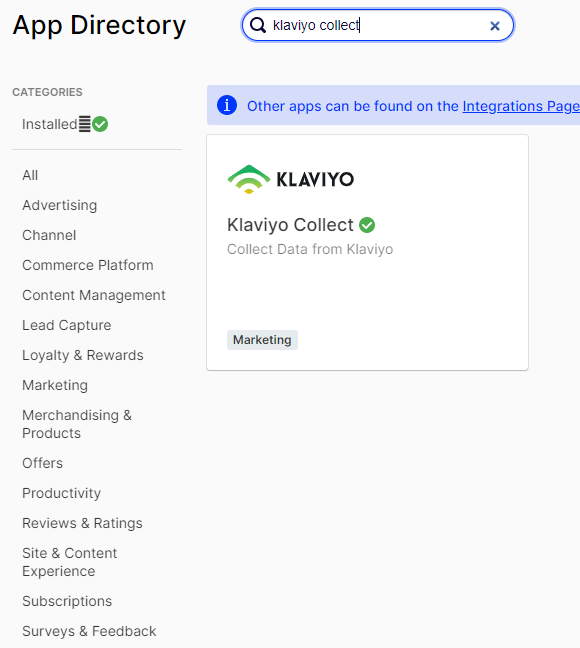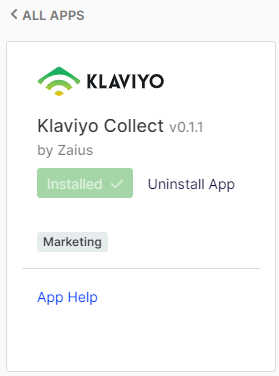app.yml
Learn about the app.yml file for apps in Connect Platform for Optimizely Data Platform (ODP).
Define your app in the app.yml file, including store details, runtime, functions, and jobs that your app uses.
meta section of app.yml
meta section of app.ymlThe meta section of the app.yml file describes the basic elements of your app. It includes the following fields:
app_id– The unique identifier of your application in Connect Platform for Optimizely Data Platform (ODP).display_name– The name that displays for your app in the ODP App Directory.version– The version of your app that displays in the ODP App Directory.vendor– The display name of your firm or company that displays in the ODP App Directory.summary– The description of your app that displays in the ODP App Directory.support_url– The support URL for your app or company that displays in the ODP App Directory.contact_email– The email customers contact for questions or issues with your app.categories– Tag the app for sorting in the ODP App Directory. See the options below:AdvertisingChannelCommerce PlatformContent ManagementLead CaptureLoyalty & RewardsMarketingMerchandising & ProductsOffersProductivityReviews & RatingsSite & Content ExperienceSubscriptionsSurveys & Feedback
availability– The global regions where you want to make the app available. See the options below:us– United States (required)eu– Europeau– Asia-Pacificall– All current and future available deployment regions.
Below is an example of the meta section of the app.yml file for a data integration app between (ODP and Klaviyo.
meta:
app_id: klaviyo_collect
display_name: Klaviyo Collect
version: 0.1.1
vendor: Zaius
summary: Collect Data from Klaviyo
support_url: https://www.optimizely.com
contact_email: [email protected]
categories:
- Marketing
availabiity:
- us
The following image shows how this example app displays in the ODP App Directory:

And how it displays when users select the app in the ODP App Directory.

Complete app.yml file example
app.yml file exampleBelow is a complete example of an app.yml file:
meta:
app_id: sample_app
display_name: Sample App
version: 1.0.0
vendor: optimizely
summary: A sample app
support_url: https://www.optimizely.com
contact_email: [email protected]
legal_url: https://optimizely.com/privacy_policy
categories:
- Commerce Platform
availabiity:
- all
runtime: node18
environment:
- APP_ENV_GLOBAL_SECRET
functions:
handle_event:
entry_point: HandleEvent
description: Transforms incoming data into ODP events
jobs:
historical_import:
entry_point: HistoricalImport
description: Performs a one-time historical import when triggered
nightly_import:
entry_point: NightlyImport
# runs at midnight every night
cron: 0 0 0 ? * *
description: Performs a nightly import for data that isn't provided or needed in real-time
liquid_extensions:
generate_coupon:
entry_point: GenerateCoupon
description: Generates a unique coupon code
input:
rule:
type: string
required: true
description: The coupon rule to create the coupon from
email:
type: string
required: false
description: Email address to tie the coupon code to
channel:
type: facebook_messenger
targeting:
- identifier: sample_app_messenger_id
options:
prepare: true
Example data integration
This example app pulls data from an email service provider (ESP). The import job can handle both the historical import and hourly pulls. The GetEspLists function lets you pull lists from the ESP so you can import them.
meta:
app_id: esp_collect
display_name: ESP Collection App
version: 1.0.0
vendor: optimizely
summary: An app that imports contacts and activity
support_url: https://www.optimizely.com
support_email: [email protected]
categories:
- Marketing Automation
runtime: node18
functions:
get_esp_lists:
entry_point: GetEspLists
description: Pulls the lists from the ESP to select which ones you want imported
jobs:
import:
entry_point: Import
description: Performs a one-time historical import when triggered
# Runs every hour
cron: 0 0 * * * ?
Example channel integration
This app integrates with an SMS vendor to send text messages. It has the SmsCallbackHandler, which gets the webhook activity that comes from the vendor. It also includes details about the SMS channel, defines how the app handles reachability and defines the supported identifiers.
meta:
app_id: sms
display_name: SMS
version: 1.0.0
vendor: optimizely
summary: Deliver transactional and promotional messages over SMS from any ODP campaign
support_url: https://apps.optimizely.com/sms
contact_email: [email protected]
categories:
- Channel
runtime: node18
functions:
sms_callback:
entry_point: SmsCallbackHandler
description: Handles incoming messages and events about message delivery
channel:
type: sms
targeting:
- identifier: phone
options:
prepare: false
metrics:
delivery:
- sent
- delivery
- delivery_unknown
reachability:
- hard_bounce
- soft_bounce
Updated about 1 month ago